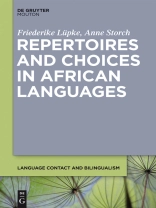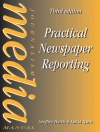Most African languages are spoken by communities as one of several languages present on a daily basis. The persistence of multilingualism and the linguistic creativity manifest in the playful use of different languages are striking, especially against the backdrop of language death and expanding monolingualism elsewhere in the world. The effortless mastery of several languages is disturbing, however, for those who take essentialist perspectives that see it as a problem rather than a resource, and for the dominating, conflictual, sociolinguistic model of multilingualism. This volume investigates African minority languages in the context of changing patterns of multilingualism, and also assesses the status of African languages in terms of existing influential vitality scales. An important aspect of multilingual praxis is the speakers’ agency in making choices, their repertoires of registers and the multiplicity of language ideology associated with different ways of speaking. The volume represents a new and original contribution to the ethnography of speaking of multilingual practices and the cultural ideas associated with them.
O autorze
Friederike Lüpke, School of Oriental and African Studies, University of London, UK; Anne Storch, Institute for African Studies and Egyptology, University of Cologne, Germany.












